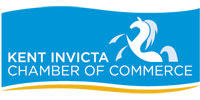Read our list of tips for controlling your cash flow, including chasing debts and avoiding the dangers of overtrading
- Regularly monitor and revise your cash flow budget to anticipate potential cash shortages.
- Invoice promptly and chase outstanding payments vigorously. Invoices for business-to-business transactions must be paid within 60 days, unless an alternative payment period has been agreed. Public-sector bodies must pay invoices within 30 days.
- Consider charging interest on late payments and debt recovery compensation charges to deter late payment.
- Develop warning systems to identify where delays or unexpected changes could cause the business to run out of cash.
- Be prepared to trade off profitability and other business objectives when your cash flow position is, or may become, critical.
- Minimise the amount of cash owed to you by restricting credit limits and payment periods and consider factoring your debts.
- Put customer accounts on stop once they reach their agreed credit limit and do not provide further goods or services until they have paid what they owe.
- Generate short-term sales income by offering incentives to bring forward purchases and discounts for cash payment.
- Cut unnecessary costs and shop around for competitive prices; negotiate generous payment periods and short delivery lead-times.
- Use your stock control system to minimise cash tied up in stock.
- Assess your cash flow position before committing to any new expenditure or increases in overheads. Consider using leasing to finance assets.
- Be prepared to turn down orders if you cannot finance them. Negotiate deposits or stage payments for large orders and long-term contracts.
- Build relationships with financiers and suppliers so they will extend extra credit when you need it.
- Arrange additional financing before you need it. Seek equity investment if cash flow will not safely cover interest payments.
- Sell unproductive or superfluous assets and discontinue business lines with negative cash flow.
- Take into account short-term fluctuations which do not show up on monthly or weekly budgets.
